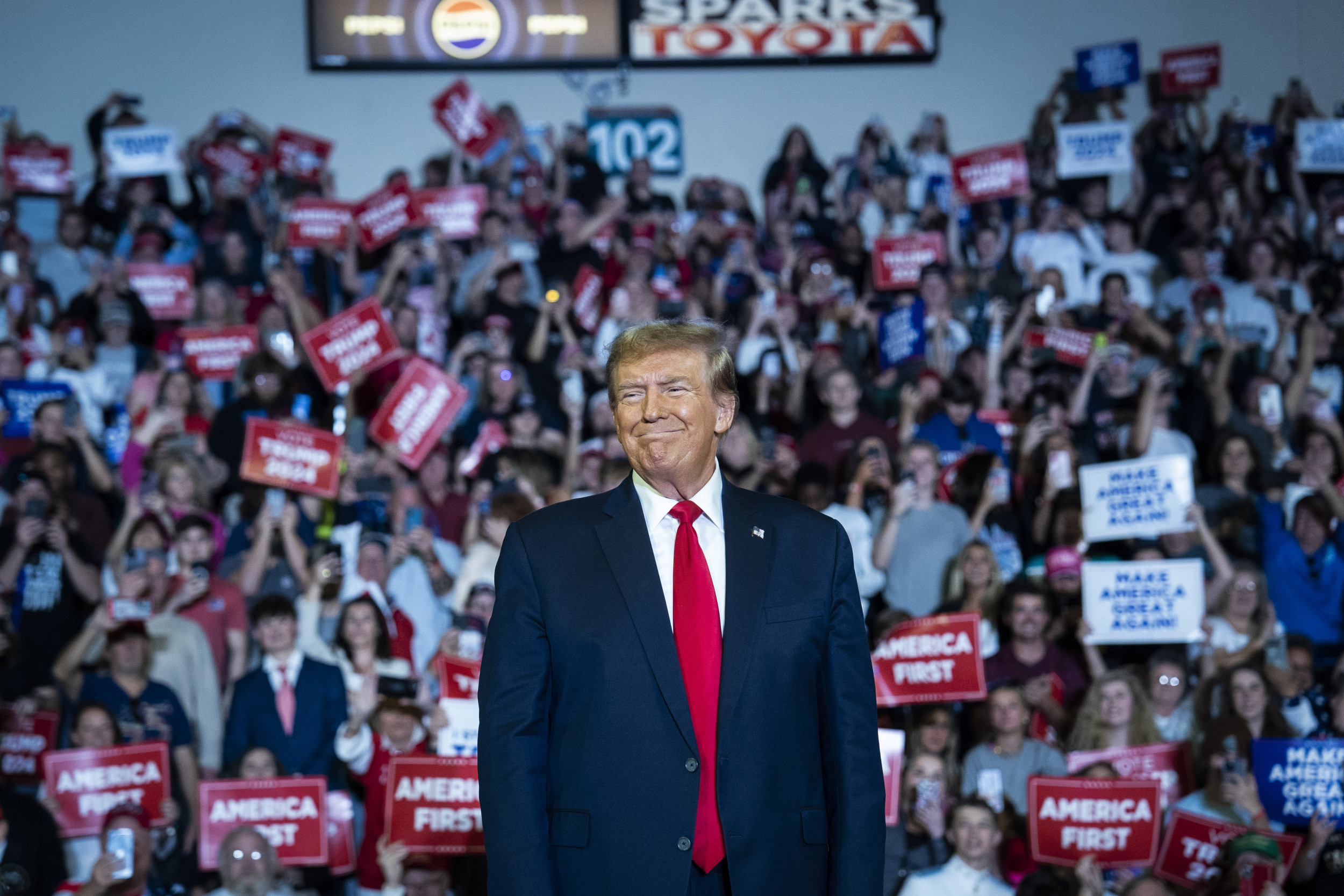
Updated | The Trump campaign denied a report in Serbian weekly magazine Nedeljnik that Republican presidential candidate Donald Trump has issued an apology for his country's decision to bomb Serbia during Bill Clinton's tenure at the White House.
Jason Miller, senior communications advisor to Trump, said Trump and the campaign's Indiana state director Suzie Jaworowski never gave an interview to the magazine. "This was a hoax and we look forward to receiving a formal retraction and apology from all involved," Miller said in an emailed statement.
Nedeljnik was not immediately reachable for further comment on the Trump campaign's statement. The magazine published two posts in Serbian later on Thursday that appeared to suggest it was investigating.
U.S. and NATO allies launched aerial campaigns against the faltering Yugoslav regime, targeting ethnic Serb troops, in 1995 and 1999. The first attack was carried out in support of groups in Bosnia and Herzegovina, seeking independence from Belgrade, while the second was in support of similar forces in Kosovo. Trump was asked to comment on the campaign in 1999.
According to Nedeljnik's report, Jaworowski said, "The bombing of Serbs, who were our allies in both world wars, was a big mistake ... Serbians are very good people. Unfortunately, the Clinton administration caused them a lot of harm, but also throughout the Balkans, which they made a mess out of."
The interview was purportedly conducted via email, Nedeljnik's managing editor, Marko Prelevic, told Newsweek. Jaworowski, however, denied being in contact with Serbian media or setting up the interview. Speaking to Politico, she said, "There was no Trump interview on Serbia."
Bill Clinton, husband and supporter of Trump's rival in the presidential race, Hillary Clinton, was the U.S. president throughout the violent collapse of Yugoslavia, which saw ethnic Serb militias engage in ethnic cleansing against predominantly Muslim groups in the former Yugoslavia. The bombings caused hundreds of civilian casualties but also stopped the advance of Serb troops.
According to the report, Trump did not specify how he would have handled the situation differently, but vowed to have "a new policy with the Balkans" if he wins the election.
The NATO bombings are still a controversial issue in Serbia, which has been transformed since the collapse of the Communist Yugoslav Federation into an EU candidate country.
Before the campaign issued its denial, Eric Gordy, professor in Southeast European Politics at University College London, told Newsweek Trump's words echo the tactic used by the Russian government to cultivate support among Serbs.
"The most obvious interpretation of his statement is that it is another sign of alignment with Russia," he says. "To be honest, this kind of statement is usually more a symbolic attempt for Russian politicians to drum up resentment towards the U.S.," Gordy said.
"I expect this is probably just rhetoric by Trump as U.S. policy in the Balkans has been pretty consistently supportive of Serbia since they waged the aerial campaign in the 1990s," Gordy added. "Otherwise it is hard to imagine that the U.S. could be more pro-Serbia at the moment."
The bombings are a strong factor keeping Serbia officially neutral from military alliances, be it with NATO or Russia, when all of its neighbors, with the exception of Bosnia, are either in NATO or applying for membership. Russia has sought to cultivate stronger military and political ties with Serbia as a result, and it is currently sending troops on their first military drill on the Balkans, in Serbia.
Politically, the Kremlin has often tried to play up the religious bond between the two Orthodox countries, as well as their role in fighting Nazism in World War II. When U.S. Vice President Joe Biden visited Serbia earlier this year he was met by hundreds of protesters chanting "Vote for Trump." The protest was organized by one of Serbia's biggest pro-Russian powers, the nationalist Radical Party.
Gordy continued: "This is rhetoric consistent with both the Russian line on Serbia and the U.S. far-right who view the Yugoslav conflict in terms of a battle between Christianity and Islam. They look at Bosnia and Kosovo and argue that this is when Islamists got their first foot in Europe.
"Another aspect, if you look at the states that Trump would like to contest in the election, such as Ohio and Pennsylvania, they are states with the biggest concentration of voters that trace their roots back to the Balkans, so his statement could have something to do with that," he concluded.
Editors Note: This story has been updated to add Trump campaign's statement denying the report by Nedeljnik.
Update: This version of the story includes links to two posts by the publication.
Uncommon Knowledge
Newsweek is committed to challenging conventional wisdom and finding connections in the search for common ground.
Newsweek is committed to challenging conventional wisdom and finding connections in the search for common ground.
About the writer
I am a Staff Writer for Newsweek's international desk. I report on current events in Russia, the former Soviet Union ... Read more
To read how Newsweek uses AI as a newsroom tool, Click here.








